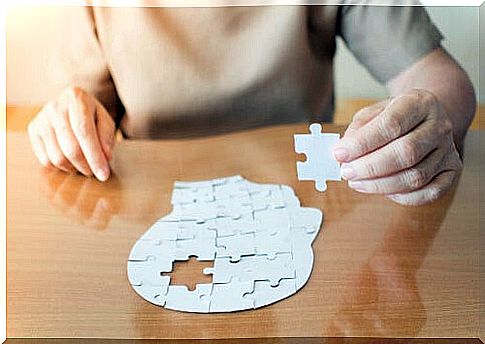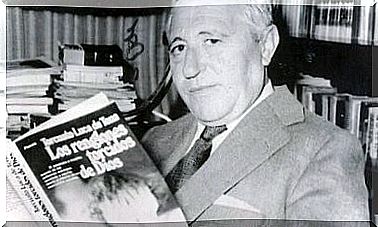The Mini-Mental Test To Detect Possible Dementias

Due to the longevity of the population, the presence of Alzheimer’s and other dementias has increased significantly. Therefore, it is necessary to have evaluation instruments that, quickly and easily, are capable of detecting the existence of these conditions. The Mini-Mental test is one of the most used for this task.
The early detection of this disease, not only by specialists, but also by doctors in primary care, is essential to establish guidelines and treatments that improve its evolution. Especially considering that around 70% of cases are not correctly identified.

The Mini-Mental test
The Mini Mental State Examination (MMSE) assesses cognitive alterations in order to detect possible cases of dementia. It is a screening instrument, which means that it performs an initial screening that must always be completed with a more exhaustive evaluation in case of suspicion. Based on the scores obtained by the subject, he is able to discern between normal cognitive functioning, mild, moderate and severe dementia.
The existence of mild cognitive impairment associated with age must be taken into account, which is benign and common in elderly people. The main difference between this condition and dementia is that in the first case only memory is affected, while in the second the affectation is multiple and compromises the ability to function in daily life.
To account for this reality, the Mini-Mental test assesses, through its questions, the different cognitive areas that may be altered. Before starting, the person is explained that they are going to be asked some questions and then they are going to be asked to carry out some tasks. After making sure you are wearing the necessary glasses or hearing aids to alleviate any sensory deficits, we can begin.
Cognitive areas evaluated by the Mini-Mental test
Orientation
- To evaluate the temporal orientation, the person is asked: what day of the week is it today? What month are we in? What is today’s date? What year are we in? year are we?
- To evaluate spatial orientation, we ask: where are we? On which floor? And on which street? In which city? In which country?
Fixation
With this test we try to measure the retention capacity of the individual. To do this, we explain that we are going to say three words to him, that he must repeat them next and that he must try to remember them because we will ask them later. You are asked to repeat the words: “penny, horse, apple” and are awarded one point for each correct repetition.
Concentration and calculation
- We tell the individual to subtract three at a time from the number 30.
- You are then asked to repeat the 5-9-2 sequence until you learn it ; later we ask him to say it backwards.
Memory
On this occasion, the subject is asked if he remembers the three words that we told him previously in the fixation test. One point is assigned for each word remembered regardless of order.

Language and construction
- He is shown a pen and a watch and is asked to tell us what objects are
- We indicate that he repeat the phrase: “in a wheat field there were five dogs”
- We explain: an apple and a pear are fruits. So what are a cat and a dog? What about green and red?
- You are instructed to take a piece of paper in your right hand, fold it, and place it on the table. It checks if it can do it.
- We offer a paper (in which it says: close your eyes) and we ask that you read it and do what it says.
- We ask you to write a sentence with subject and predicate.
- You are shown a drawing and invited to copy it to another piece of paper.
Usefulness of the Mini-Mental test
Depending on the performance in each of the tests, scores are obtained that indicate whether the person suffers from any degree of dementia. As we have seen, this is a relatively quick and easy test to apply.
It is ideal as a screening test but it will always be necessary to complete the diagnosis with a more thorough evaluation. Despite its simplicity and discriminative capacity, it is one of the most widely used instruments in cognitive evaluation and detection of dementia.









